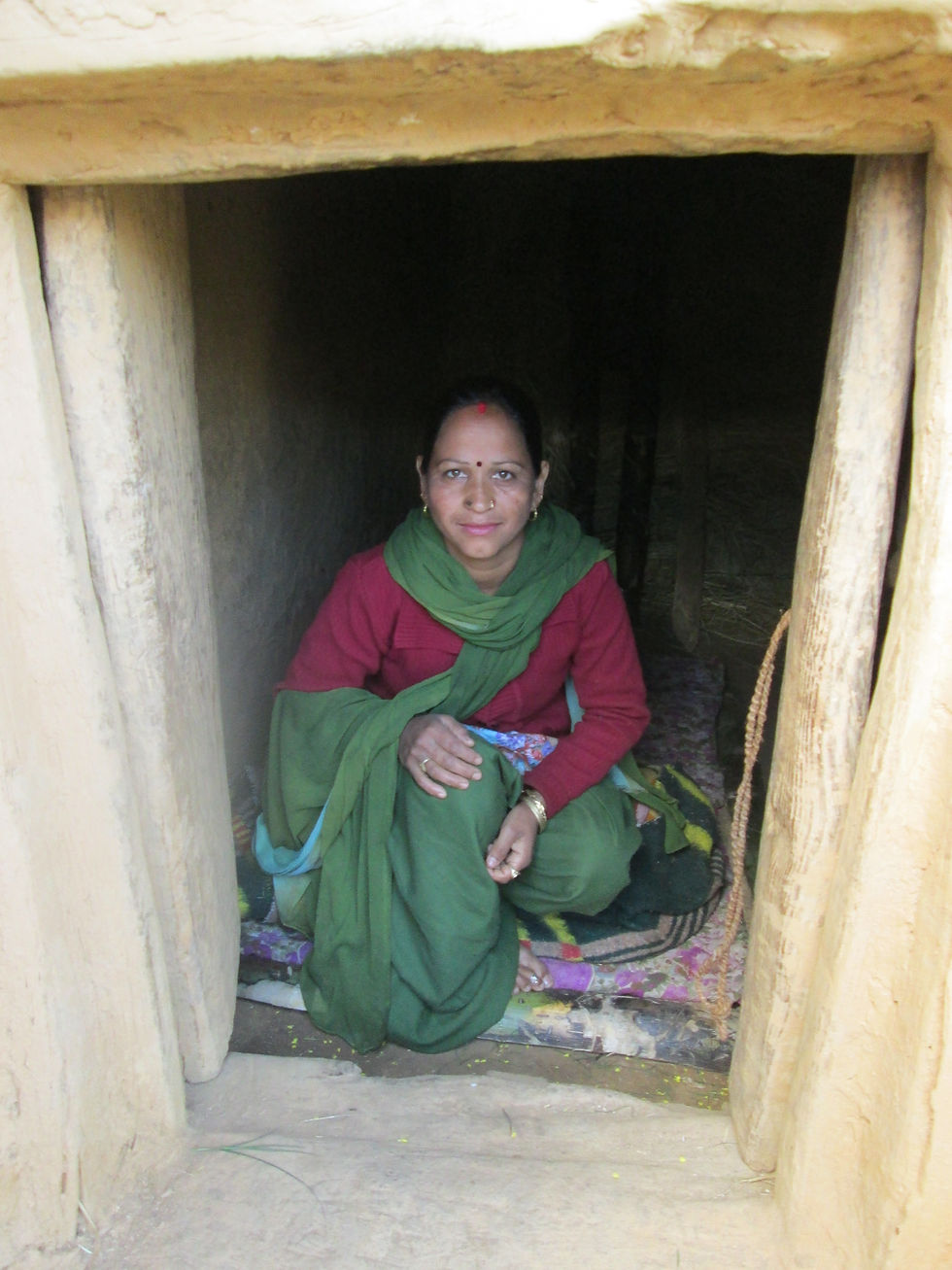Let's Stop the ‘Bloody’ Discrimination!
- Feb 21, 2017
- 3 min read
Updated: May 13, 2021
During December 2016, two teenage girls in Achham died because they were menstruating. This doesn’t mean that they became sick because of their menstruation, but rather, because they were isolated from their families in a small, cold hut, they lit a fire in an enclosed space and suffocated. Religious and cultural traditions in Far West Nepal meant that they had to spend the nights during their menstrual period outside of their house, because they were considered untouchable during this time. This ‘Chhaupadi’ hut can be a small stone hut, a cow or goat shed, or even a blanket outside.
These two deaths caught international attention and were reported in the media, but that is an exception. On average one girl or woman dies every month in Far West as a result of staying in Chhaupadi huts – dying of cold, suffocation, snake bite, or burns.
This is a manifestation of the chhaupadi tradition within Hindu religion. Menstruating women are subject to a range of discriminatory practices, though it varies a lot between different communities. These practices include: they cannot touch others (especially men), cannot drink cow’s milk products and eat some foods, cannot use the toilet and tap, cannot read books, cannot enter their house or kitchen, and cannot attend the temple.
These barriers infringe their human rights, including the right to live in a hygienic place, and the right to water and sanitation. RVWRMP’s Human Rights Approach, Gender Equality and Social Inclusion Strategy and Action Plan outlines those rights and what they mean in practice.
A large proportion of women in project VDCs aren’t using the toilet during menstruation, despite the Open Defecation Free (ODF) declaration. They are frightened of making the gods angry. Religious leaders and the older generation promote these practices, despite the fact that the whole community has understood the need for improved sanitation and universal toilet use. Women are caught in a difficult position, between religion and tradition on the one hand, and government and donor pressure on the other. It is easy for a woman who goes against these beliefs to be blamed if a family member or animal becomes sick.
What can RVWRMP do to try to combat these beliefs? Our new Menstrual Hygiene Management Strategy is a start.
We are developing behaviour change communication materials that specifically target messages to different groups. Radio jingles are going out and new posters and training materials are prepared. Our staff take the issue up always in community meetings. We talk with religious leaders, trying to convince them to change. We explain to local government staff that the Supreme Court has outlawed chhaupadi huts in 2005. But we are always faced by the challenge of how hard to push. During the civil war, the Maoists forced communities to pull down chhau huts, and for the women to stay inside during menstruation. Yet many households rebuilt the chhau huts again after the war and resumed the tradition.
RVWRMP has carried out campaigning against the chhau huts that has led to many VDCs declaring themselves chhau-hut free. But the challenge is to ensure that no one returns to sleeping outside.
And how do we convince women to use the toilet? Or their families to allow them? One option is to promote the use of two water containers within the toilet, so that the menstruating woman doesn’t need to touch the water used by others. This works in some households but not all. Intensifying the campaigning at household and community level is needed to change hearts and minds.
RVWRMP staff participated in two workshops in the last month on Menstrual Hygiene Management. Hopefully there will be another workshop soon in Far West – all with the same aim of developing a joint action plan with all partners.
Let’s all join hands to stop this discrimination and ensure access to water and sanitation for all!












































Comments